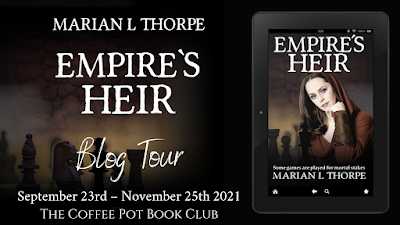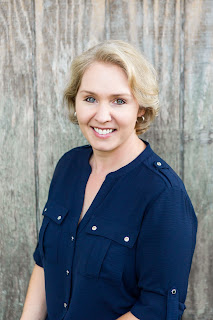Today I have an interview with Steven Neil! While you're here, have a look at his book – isn't the cover absolutely beautiful?!
By Steven Neil
Grab a copy HERE!
INTERVIEW
Writing Interview Questions.
Why did you choose to write your book in this era?
It happened by accident. Originally I was planning to write a 20th century Dick Francis style, horse racing thriller and I was researching famous jockeys, but then I came across a jockey called Jem Mason, who won the first Grand National at Liverpool in 1839. For a while he was the subject of my first draft, but then I found a line in his Wiki description, which said something like ‘also famous for his relationship with Harriet Howard, who ran away to live with him in London when she was fifteen and who also became Louis Napoleon’s mistress and financial backer’. I decided she was an even more interesting character and I set about writing a fictional account of her life. The result was The Merest Loss.
Did you find researching this era particularly difficult? What was the hardest thing to find out, and did you come across anything particularly surprising?
I did a lot of historical research on the internet and at the British Library, trying to make sure the historical timeline was correct and that the language and cultural references were appropriate to the age. I also read a lot of 19th century novels and books on the history of Britain and France in the 19th century. I’m a fan of Anthony Trollope in particular and his writing has influenced mine significantly, I think. It is not difficult to research the 19th century (it is close enough in time to today and printed media was well developed and readily available)but there was surprisingly little information about Harriet Howard, even though she almost became Empress of France. The good news is that this left plenty of gaps for me to generate my fictional account.
I came to appreciate the Victorian era. I warmed to Harriet Howard as I wrote about her. She was arguably a woman ahead of her time. I also had a strong connection with the character Jem Mason. I have great admiration for the skill and courage of the jump jockey. I share some of his characteristics and was able to empathise with him.
I was also fascinated by the idea of a romance where the two main characters are thwarted by their own temperaments; they are both unromantic, stubborn and uncompromising. How will it ever be possible for them to get together when they seem unable to resolve arguments, even though everyone around them can see they are well suited together?
The Merest Loss took three years from conception to publication: two years of research and one year of pure writing.
Can you share something about the book that isn’t covered in the blurb?
The Merest Loss is historical fiction but it is also a romance and a political commentary. Most of the novel is written from the point of view of the omniscient narrator, writing in the present tense, although this is interspersed with four strategic chapters, from the point of view of one of the characters, in the past tense. I like the idea of varying the presentation and I also make use of letters, newspaper articles and reviews to provide additional perspective.
If you had to describe your protagonist(s), in three words, what would those three words be and why?
Harriet Howard is the heroine of The Merest Loss. She is independent, wilful and brave. Jem Mason is the main love interest. He is taciturn and difficult, but also charismatic, Tom Olliver, friend to both Harriet and Jem, is loyal, tough and reliable. Louis Napoleon, future French Emperor, is arrogant, feckless and self-regarding. Why? You will have to read the book to find out!
What was the most challenging part about writing your book?
Getting started was probably the most challenging part. I had a mental block about writing a novel. Here is the conversation with one of my creative writing tutors:
‘Me: I can only write short stories. I could never write a novel.
Her: But you can write a 2500 word short story?
Me: Yes.
Her: Well, can you write ten 2500 word short stories?
Me: Yes, I suppose so.
Her: Well, if you write thirty-six short stories on a linked theme, you have written a novel.’
So that is what I did. Writing doesn’t come naturally to me, but I kept going.
Was there anything that you edited out of this book that would have drastically affected the story, should it be left in?
Most of the content of The Merest Loss survived the editing process, but I experimented with different ways of narrating the story, including writing it in the first person from Harriet Howard’s viewpoint. Whilst there were attractions in this, I eventually opted for a mixed presentation, allowing different perspectives on Harriet’s character, but leaving the reader to make up their own mind. It would have been a very different novel in Harriet’s voice and I don’t think she would have been a very reliable narrator.
What would you tell an aspiring author who had some doubts about their writing abilities?
I have met some tremendously naturally gifted writers but that alone will not make you a published author. I genuinely believe that, however gifted, you need to learn the craft of writing. Invest in a creative writing course and learn about structure, plot, point of view, character, setting and dialogue before you start writing. When you have finished the first draft of your novel, understand that you have only just begun the process of writing a publishable novel. Even if all your friends and family tell you your novel is brilliant, invest in an independent development and copy editor before you even think about publication.
Personal Interview questions.
What do you like to do when you are not writing?
My twitter page @stevenneil12 lists my interests as #Books #Horses #Theatre #Wine #Art #Music #Countryside That covers it pretty well. I’ve always been keen on equestrian sports and, whilst I don’t ride any more, I have an interest in three horses to go point-to-pointing (amateur steeplechasing) this season, so I’m hoping for some success on the racecourse.
What did you want to be when you grew up?
True story, when I was eight:
‘Auntie: What do you want to be when you grow up?
Me: I want to be like Grandad.
Auntie: But Grandad’s retired.
Me: Yes.’
I managed to semi-retire when I was 50 so that I could pursue other avenues. One of them turned out to be writing.
What’s for dinner tonight? What would you rather be eating?
Sea Bass with lentils. Steak and chips.
What would be a perfect day?
A day in the sunshine watching county cricket or a day out horse racing in the countryside.
What is the best part of your day?
I enjoy all of my day. I’m fully retired and have no pressure to do anything, so if I’m not having a good time it’s my fault. Having said that, I do enjoy the little rituals of the day e.g. second cup of coffee around 11.00 am, preferably sitting in the garden, or a nice chilled glass of Chablis around 6.00 pm.
Either or!
Tea or coffee: Coffee
Hot or cold: Hot
Movie or book: Book
Morning person or Night owl: Morning person
City or country: Country
Social Media or book: Book
Paperback or ebook: Audiobook!




















